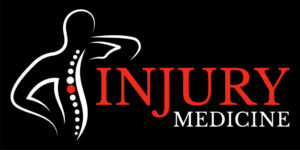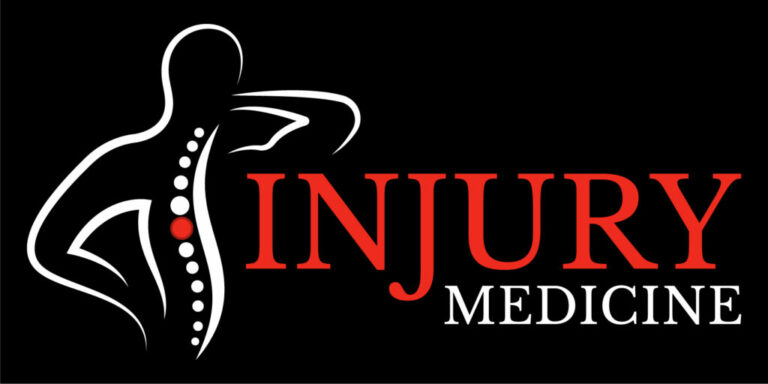Whiplash is one of the most commonly reported injuries following a rear-end car accident, affecting approximately 3 million individuals annually in America. Chronic pain resulting from whiplash impacts about 1.5 million Americans and leads to disability in around 300,000 individuals. This injury can occur at low speeds, with research showing that crashes at speeds as low as 5 mph can result in whiplash injuries.
The consequences of this injury can be severe, with some individuals experiencing chronic pain for years, significantly impacting their quality of life. For this reason, it is crucial to receive proper whiplash treatment in Anderson, SC.
At Injury Medicine, our team of specialists has extensive experience in treating car accident injuries such as whiplash.
What Is Whiplash?
Whiplash is a neck injury that occurs due to sudden forward and backward or vice versa movement of the neck. While the medical community is still exploring the precise cause and characteristics of this injury, it is thought to involve the tendons, nerves, discs, and muscles in the neck.
Causes of Whiplash
Whiplash is typically caused by a sudden deceleration or acceleration that occurs during a collision. Rear-end vehicle collisions are a common cause of whiplash injuries for many people. However, it can also happen during contact sports, or other activities such as gymnastics, slip and falls, or any other circumstance that leads to unnatural and abrupt forward and backward neck movement.
Whiplash Symptoms
Whiplash injuries can present a range of symptoms that involve damage to nerve roots, cervical muscles, ligaments, discs, and spinal joints. While some symptoms may manifest immediately after the accident, others may take several days to appear.
Common symptoms of whiplash may include:
- Headache
- Neck stiffness
- Shoulder or back pain
- Itching, burning, or tingling sensation in shoulders, neck, or arms
- Dizziness
- Ringing in the ears
- Difficulty in concentrating
- Memory problems
- Tiredness
- Blurred vision
- Sleeplessness
- Irritability
Without proper diagnosis and treatment, whiplash injuries can worsen over time. Therefore, it is crucial to seek appropriate medical attention and address any issues promptly whenever you experience a neck injury.
It’s essential to get the right whiplash treatment in Anderson to ensure that you receive adequate care and treatment.
Whiplash Diagnosis
Diagnosing whiplash injuries typically involves physical exams, a complete medical history, and diagnostic imaging tests. Here are the common tests that medical professionals use to diagnose whiplash.
X-Ray
Chances are that you have had an x-ray taken at some point in your life. During this diagnostic test, electromagnetic beams are projected onto the injured area and onto x-ray film, which is placed behind the injured area.
As calcium in your body absorbs electromagnetic energy, it projects an image of internal bones, organs, and tissues onto the film, which can be used for injury diagnosis.
While an x-ray is a commonly used diagnostic tool, it is not comprehensive in identifying soft tissue injuries, as they cannot be easily detected through this method.
Magnetic Resonance Imaging
MRIs, or Magnetic Resonance Imaging, are frequently employed for diagnostic purposes. This method utilizes a combination of large magnets and computers to generate detailed images of soft tissues and organs within the body.
CT Scan
A CT scan, also known as a computed tomography scan, is a diagnostic tool that uses a combination of x-rays and computers to create detailed images of the injured area of the body. Compared to x-rays, CT scans offer a higher level of detail, which can lead to a more accurate diagnosis.
Treatment of Whiplash
At Injury Medicine, our team of specialists provides individualized whiplash treatment plans tailored to meet the specific needs of each patient. We understand that every case is unique and requires a personalized approach.
Our customized treatment plans may include chiropractic care, physical therapy, massage therapy, nerve blocks, and other non-surgical treatments to help relieve pain and promote healing.
Our goal is to help you regain your strength and mobility while providing relief from pain and discomfort.
The treatment may include:
- Application of ice during the first 24 hours of the injury
- Support for the neck through a cervical collar
- Gentle movement of the neck after the first 24 hours
- Use of nonsteroidal anti-inflammatory medicines such as ibuprofen
- Use of medicines for relaxing muscles
- Chiropractic manipulation
- Use of numbing medication
To manage pain and promote healing, numbing medications may be used as part of the treatment plan for whiplash injuries. Ice can also be used in the first 24 hours following the injury to reduce pain and swelling, while heat can be applied after the first day to relax tight muscles.
While rest may seem like the best option, it is not recommended for recovery from whiplash injuries. Gradually resuming normal activities can help promote mobility and muscle strength. Prolonged rest may weaken already sore muscles and lead to longer recovery times.
Most patients are able to recover fully within three months with proper treatment and care. However, in some cases, symptoms may persist for up to a year.
Whiplash Treatments We Can Provide
At Injury Medicine located in Anderson, SC, we provide various treatment options for whiplash injuries. Our professionals will first conduct a thorough physical examination to assess your condition, and if necessary, may use diagnostic tests such as x-rays, MRIs, or CT scans to accurately determine the extent of your injuries.
Once the diagnosis is confirmed, we will develop a personalized treatment plan that will cater to your specific needs and help alleviate your pain and discomfort. Here is a list of some of the treatment methods we use for effective recovery from whiplash injuries.
Chiropractic Adjustments
Chiropractic adjustments refer to the therapeutic technique of manipulating the spine to improve spinal alignment and alleviate pain.
Medication
At Injury Medicine, we provide pain management options that include both prescription and over-the-counter medications. For most cases, we begin with nonsteroidal anti-inflammatory drugs (NSAIDs) like ibuprofen as the first line of treatment. However, if the pain is acute, we may prescribe stronger pain medications.
Nerve Blocks
A nerve block is a procedure that can provide relief from pain by temporarily blocking the nerve from sending signals to the brain. This can be done using medication alone or in combination with an anesthetic.
Non-surgical nerve blocks involve the injection of medication around a bundle of nerves to numb the area and provide temporary pain relief. This can be a useful treatment option for those with whiplash injuries who are experiencing pain.
Radiofrequency Ablation
Radiofrequency ablation involves the use of radio waves to generate heat, which then prevents nerve signals from reaching the brain and provides relief from pain. While not a permanent solution, radiofrequency ablation typically provides longer-lasting relief than nerve blocks, with effects lasting between 9 to 24 months.
Spinal Cord Stimulator
Spinal cord stimulators use a controlled electrical current to block nerve signals from reaching the brain. They are designed to manage various complex conditions, including neck pain. These implantable neural stimulation devices have been in use since the 1960s, and are often preferred by patients over more invasive options such as spine surgery.
Injections
If you suffer from a whiplash injury that results in nerve root compression, your doctor may suggest injections to relieve the pain. These injections can include epidural steroid injections, facet joint injections, or medial branch blocks.
Typically, these injections combine a local anesthetic and a steroid. The anesthetic provides immediate pain relief, while the steroid helps to reduce inflammation.
Orthopedic Surgery
If the treatments mentioned above do not effectively relieve chronic pain after eight weeks, and symptoms such as numbness or persistent pain in the hands, shoulders, or arms persist, our medical team may recommend orthopedic surgery. The type of surgery recommended will vary depending on the patient’s age and specific diagnosis.
Kyphoplasty
Kyphoplasty is a minimally invasive surgical procedure that aims to alleviate pain caused by vertebral compression fractures. During the procedure, bone cement that hardens quickly is injected into the fracture, restoring the strength and function of the bone. This can provide significant relief from pain and improve the patient’s quality of life.
Call About Whiplash Treatment in Anderson Today!
It’s critical to seek medical attention for a proper diagnosis if you’ve been in a motor vehicle accident and are experiencing physical symptoms. Whiplash injuries may not be visible, but they can result in severe pain if left untreated.
If you’re experiencing severe pain, neck instability, weakness, numbness, coordination problems, memory issues, shoulder pain, arm pain, tingling, or other health issues after an accident, contact our Anderson injury center today.
At Injury Medicine, we offer a variety of treatment options to assist you in recovering from your injuries and improving your quality of life. To schedule an appointment with one of our whiplash injury experts, call us today at 864-866-PAIN.


